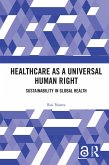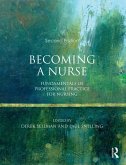Dieser Download kann aus rechtlichen Gründen nur mit Rechnungsadresse in A, B, BG, CY, CZ, D, DK, EW, E, FIN, F, GR, HR, H, IRL, I, LT, L, LR, M, NL, PL, P, R, S, SLO, SK ausgeliefert werden.
The book is helpfully organised into four sections, on the primary care interaction, vulnerable patients, teaching and learning, and justice and resources. The section on teaching and learning is particularly valuable, with its strong focus on reflective practice and the practical challenges of combining service delivery with educational goals. The section on the primary care encounter is wide-ranging, including discursive explorations of important concepts as well as discussion of the specific features of primary care that warrant its own ethical analysis. Case studies provide tantalising glimpses into the consultation, thereby showcasing the richness of the primary care environment. Chapters in the section on justice and resources do not shy away from political topics such as funding models and workforce issues.
The Handbook focuses on general practice as delivered within the National Health Service, which may limit its appeal to other members of the primary care team. However, there is something here for everyone, whether the reader is looking for guidance on duties in primary care, a framework for analysing a difficult consultation, insights into the voice of the patient, or an understanding of the economics of primary care. Throughout there is a welcome focus on 'ethics of the ordinary' or 'everyday ethics', reflecting the ethical nuances of the millions of interactions that occur each day in primary care.
Wendy Rogers, Professor of Clinical Ethics, Macquarie University









